The “XXVIII School Of Pure and Applied Biophysics”, organized by the Italian Society of Pure and Applied Biophysics (SIBPA) in collaboration with the Istituto Veneto di Scienze Lettere e Arti (IVSLA), will take place the 5th to 9th of February 2024 at Palazzo Franchetti in Venice.
This year’s theme, “Molecules in(ter)action: from nano to macroscale” will span from cuvette experiments to in vivo, exploring the fascinating world of biomolecular interactions from physics perspective.
The aim of this course is to delve into the structure, conformation, dynamics, and interactions of biomolecules in diverse environments, from solutions to living cells and biological tissues. We will explore a range of experimental techniques for tracking both in vitro and in vivo biochemical reactions and other processes crucial to life.
Applications are welcome from young scientists, including PhD students and postdocs, who share an interest in the subject matter of the school. An opportunity to present your work will be provided through a poster session and flash talks. Registration guidelines can be found on the school’s website at the link below . Please note that due to limited seating, only a maximum of 26 participants will be selected by the Scientific Committee based on the information provided in your application, including a short CV and a recommendation letter. Seats are filling up fast, so don’t delay!
The application deadline is the 16th of December 2023.
We look forward to your active participation in this enriching educational experience. For further details and application instructions, visit the school website.
https://venice2024.ibf.cnr.it/
